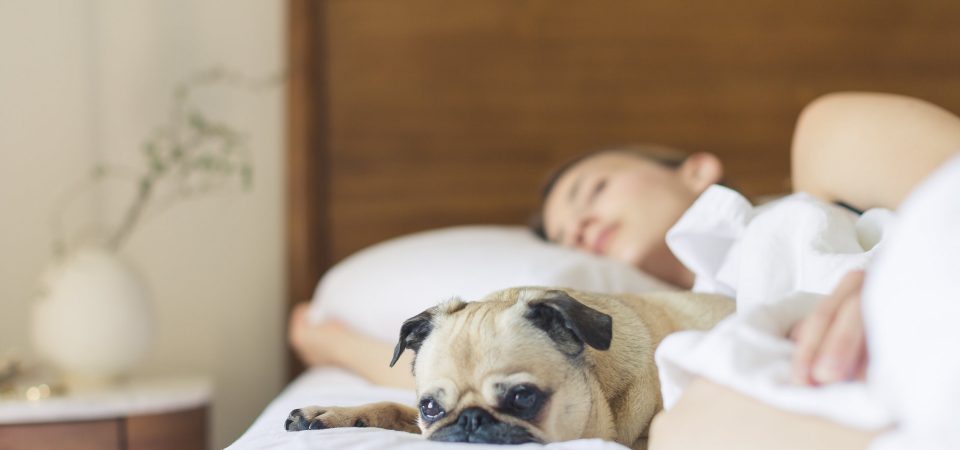You know the stereotypes of growing old. They include waning health, lack of energy, a near-zero libido, and countless hours watching television during your last days. The get-older narrative says your knees should ache, your memory and concentration should decline, and you should creak and groan getting out of bed in the morning. Well that does not necessarily need to be the case with you.
12 Stress Management Tips to Age Gracefully
A key component of growing old gracefully is learning stress management. How to deal with and relieve stress plays a significant role in healthy aging.
“The key point is that the right food, sleep, exercise, and detoxification can reverse many hormone problems associated with aging,” says Gottfried in Younger. Here are 12 ways to manage stress and age gracefully.
1. Eat more fruits and vegetables
One Australian study with over 60,000 adults over 45 found increasing fruits and vegetables might help reduce psychological distress in middle-aged and older adults. Among their benefits, a wide array of antioxidant-rich, colorful produce including leafy green vegetables and berries can reduce the oxidative stress that Bowden says accelerates aging.
2. Drink more green tea
Green tea might be the perfect way to reduce stress and age well. Among its benefits, researchers show the polyphenols in green tea can protect your skin against premature aging, and the L-theanine can lower stress levels. Look for organic green tea, and if you’re caffeine-sensitive opt for decaffeinated varieties.
3. Get the right nutrients
Researchers find foods rich in polyphenols can protect against age-related diseases including atherosclerosis, cardiovascular disease, cancer, and dementia. Resveratrol, a polyphenol found in grape and blueberries, has beneficial effects as anti-aging compounds through modulating oxidative damage, inflammation, telomere attrition, and other hallmarks of aging. To get therapeutic amounts of resveratrol and other potentially anti-aging nutrients, you’ll probably want to supplement. Talk with your chiropractor or other healthcare professional to incorporate the correct doses of resveratrol and other anti-aging, stress-lowering nutrients into your diet.
4. Nix the sugar
Sugar should be avoided for stress management and healthy aging. Blood sugar spikes and crashes, which causes mood swings and low energy levels — but that’s only part of the problem. Glycation, which Bowden says contributes to aging, occurs when excess sugar “gums up” up your proteins, making them sticky and ineffective to do their jobs. Glycation creates advanced glycation end products, appropriately called AGEs, that contributes to many conditions including skin aging. Sugar comes in sneaky forms — even in healthy foods including almond milk — so read labels and ingredients. If it has more than five grams of sugar per serving, put it back.
5. Lower inflammation
Research shows many Canadians eat 20 times or more inflammatory omega-6 fatty acids than anti-inflammatory omega-3 fatty acids. The results appear around our waistline and overall health. Studies link inflammation to many diseases, including obesity. Inflammatory foods include potential food sensitivities —like dairy and gluten — as well as foods heavy in omega-6 fatty acids, like vegetable oil. Instead, focus on anti-inflammatory, nutrient-rich foods including wild-caught seafood, freshly ground flaxseed, chia seeds, berries, and leafy and cruciferous non-starchy vegetables.
6. Try meditation
One of the benefits of meditation is stress reduction. A study among 40 secondary school teachers who taught children with behavioral problems found that Transcendental Meditation helped reduce psychological distress in teachers and support staff.
7. Stay flexible with yoga
Among its benefits, research shows yoga can enhance muscular strength and body flexibility, promote and improve respiratory and cardiovascular function, reduce stress, anxiety, depression, and chronic pain, improve sleep patterns, and enhance overall well-being and quality of life. Like with meditation, many forms of yoga exist, including gentle yoga, Vinyasa flow, and hot yoga. Finding the style that works for you might include sampling a few classes or trying out some workouts online. A key component of yoga is breathing, which also reduces stress and helps you age gracefully.
8. Lift weights
“As we grow older, we lose muscle—it just disappears,” says Hyman in Food: What the Heck Should I Eat?“ It happens because our bodies produce less testosterone and growth hormone, and higher levels of cortisol, the stress hormone.” Weight resistance becomes an excellent way to counter muscle loss, reduce stress, and get (and stay) lean into midlife and beyond. You don’t need much time to get these benefits. Even 15–20 minutes a few times a week can produce stellar results. Form is important, so please work with a personal trainer especially if you’re new with weight lifting. Injuring yourself will only create more stress!
9. Get more sleep
Growth hormone is primarily released during the deepest sleep levels. If you’re not regularly getting deep, replenishing sleep, you may not be making enough of this hormone. Additionally, sleep loss can keep cortisol levels high the following evening and affect the resiliency of your stress response. Getting sufficient sleep — around eight hours of deep, uninterrupted sleep — requires solid sleep hygiene. This includes turning off electronics an hour or two before bed and eliminating anything stimulating that could interfere with sleep.
10. Try intermittent fasting
You can effectively raise growth hormone without a potentially dangerous hormone replacement. “The most potent natural stimulus to growth hormone secretion is fasting,” says Fung. “In one study, over a five-day fasting period, growth hormone secretion more than doubled.” If you’re a new to fasting, try intermittent fasting a few times every week. Have dinner, close up the kitchen for the night, and push breakfast as late as possible the next morning. You’ll get a 14-hour or longer fasting window that will naturally boost growth hormone and can help you lose weight.
11. Eat more quality protein
“Protein is required to maintain and build muscle, and with loss of muscle (sarcopenia) come age-related hormonal changes, higher levels of stress hormones like cortisol, and lower levels of anti-aging hormones like growth hormone and testosterone,” says Hyman in Food. “That’s why studies show that as you age you need more protein to prevent disease and death.” Smart protein sources include free-range poultry, grass-fed beef, and wild-caught seafood. Vegans and vegetarians can get good amounts of quality protein from foods like legumes, nuts, and seeds.
12. Visit your chiropractor
One of the best ways to lower stress and reduce or reverse many components of aging — including inflammation, oxidative stress, pain relief, and a strong immune system — is to visit your chiropractor. Chiropractic care provides an optimal way to age gracefully and reduce stress. Along with addressing vertebral misalignments, your chiropractor can develop an individualized protocol that helps you stay healthy, lean, and vibrant as you grow older.
Chronic stress can sabotage your life in so many ways, including aging you faster. Self-care including learning how to handle stress is not a luxury if you want to age gracefully. With these 12 key strategies, you’ll have everything you need to grow older feeling like your best self.
Also, seeing a Chiropractor regularly during the summer months can also help boost your immune system.



